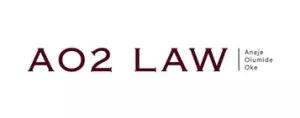Introduction
Taxation of non-residents in Nigeria has been quite an interesting area of tax law considering the dynamism of commerce and increase in trans-border transactions by multinational enterprises ("MNEs"). Also, the recent tax drive by the Nigerian government to increase revenue in the wake of the slump in oil prices show how important this subject has become.
Globalisation of trade has seen businesses perform various parts of their activities and functions in different parts of the world in order to arrive at a single product. Reasons for adopting this model include: cost of labour, availability of skill, tax incentives to mention a few. For example, mobile phone devices are conceptualised and designed in the United States, the relevant software developed in India and the manufacturing done in China. Also, fashion houses carry out similar activities by having designs in Europe and production in Asia. This myriad of cross-border activities no doubt throw up concerns around the issue of taxation as MNEs find themselves facing Revenue Authorities of various jurisdiction in relation to a single product. Often, Revenue Authorities, want a slice of the pie through ensuring that the right taxes are paid in the jurisdictions were the relevant activities leading to the production of an item are carried out. However, MNEs potentially (and more often than not) face the risk of double taxation in these jurisdictions.
This has been a prevalent issue in Nigeria as the Federal Inland Revenue Service ("FIRS") in recent times has sought to capture within the tax net, all forms of activities leading to the creation of a product,notwithstanding the fact that some of the activities are not carried out in Nigeria.
The Nigerian single contract doctrine
Under the Nigerian Companies Income Tax Act ("CITA"), tax is chargeable upon the profits of any company accruing in, derived from, brought into, or received in, Nigeria. The CITA goes further to provide for a set of criteria where the profits of a non-Nigerian company shall be deemed to have been derived from Nigeria. These criteria include:
- Where the foreign company has a fixed base in Nigeria, the company is taxable in Nigeria to the extent that the profit is attributable to the fixed base;
- Where the foreign company does not have a fixed base in Nigeria but habitually operates a trade or business or habitually maintains a stock of goods or merchandize in Nigeria, the company is taxable in Nigeria to the extent that the profit is attributable to the business or trade carried on through that person;
- If the trade or business involves a single contract for surveys, deliveries, installations or construction;
- Related party transactions deemed to be artificial or fictitious;
Of particular interest is the third criterion through which the profits of a foreign company will be deemed to have been derived from Nigeria and thus chargeable to Nigerian income tax is where the profit of such a foreign company is derived from a single contract for surveys, deliveries, installation or construction, sometimes referred to as "turnkey contracts or projects".
Usually, turnkey contracts involve tripartite relationships (or more) documented in a single contract. The typical attitude of the FIRS is to treat such tripartite agreements as single and indivisible contracts notwithstanding the fact that such agreements are separate which specify the different obligations of the parties including the location in which those obligations are to be performed. This treatment brings the profit of the entire contract into the Nigerian tax net irrespective of the fact that certain aspects of the contract have been performed outside Nigeria.
This approach is a source of concern for MNE's who are involved in the production of an item of many parts which have been produced in various jurisdictions including Nigeria. The FIRS' interpretation of the Nigerian tax laws is to the effect that profits derived by a non-Nigerian company which has any form of Nigerian connection no matter how minute must be subject to Nigerian taxes.
Unfortunately, this approach by the FIRS was given credence by the Federal High Court in the case of Saipem Contracting Nigeria v. FIRS TLRN (Vol. 15), July 2014. In this case, Shell Nigeria Exploration and Production Company (SNEPCo) awarded a contract in a single document to Saipem Nigeria, Saipem Portugal and Saipem S.A. The contract was executed in Nigeria and the income from the contract emanated from SNEPCo in Nigeria. However, under the contract, certain obligations were to be performed in Portugal and France by Saipem Portugal and Saipem S.A. respectively and neither Saipem Protugal nor Saipem S.A. had any connection with Nigeria. They were merely to perform their respective obligations under the contract outside Nigeria and hand over the product to Saipem Nigeria for the installation and completion of the project in Nigeria. Yet, FIRS charged and assessed them to tax on the profit from the contract on the basis that it was a single contract whose profit was deemed to be derived from Nigeria. This assessment was unsuccessfully challenged by Saipem at the court of first instance, the Tax Appeal Tribunal ("TAT").
Saipem Portugal and Saipem S.A. went further on appeal at the Federal High Court to challenge their assessment to Nigerian income tax. These companies argued that despite being set out in one agreement, the agreement with SNEPCo was in substance a multiple contract for different obligations for which their respective portions of the profit was not derived from Nigeria. Their arguments were based on the following grounds:
- that the activities for which they were engaged was not within the Nigerian tax jurisdiction;
- the income for such activities are not derived from Nigeria, as no activity was carried out in Nigeria;
- the income from such activities did not accrue from activities in Nigeria;
- Payment was not to be received in Nigeria; nor
- The income from such activities was not to be brought into Nigeria
The Federal High Court however rejected the above arguments and held that the contract was a single contract emanating from Nigeria with the profit therefrom derived from Nigeria, and therefore taxable in Nigeria under Section 13(2) (c) of CITA. The court pronounced as follows:
"Both the 2nd and 3rd Plaintiffs [Saipem Portugal and Saipem S.A.] derived income from their global operations which are payable to their country of resident. They are only being taxed in Nigeria on the contract between them and the 3rd Defendant [SNEPCo] notwithstanding where the money is being paid or whether the money would be brought back to this country. All the necessaries leading to the contract execution and payment are made here in Nigeria. The companies derive their money in Nigeria and they are subject to pay tax on it subject to Nigeria [sic] tax law..."
The court's decision as stated above was based on the following:
- SNEPCo is a Nigerian entity, and the one that awarded the contract for works in Nigeria;
- the contract was executed in Nigeria; and
- the payment that emanated from SNEPCo in Nigeria, the profit of Saipem Portugal and Saipem S.A. are deemed to have been derived from Nigeria and therefore subject to tax in Nigeria.
The question that ordinarily comes to mind is that; would the court have reached a different decision if all the necessaries leading to the contract execution and payments were made outside Nigeria? Perhaps most likely. That said, the Saipem decision is worrisome as it has the potential of stifling international commercial transactions in Nigeria.
Also, taking a cursory look at the Saipem decision, one may wonder that the courts may be concerned with the form of the contracts and not necessarily the substance. What does this mean? Assuming the contract between the Saipem entities and SNEPCo were contained in different contracts evinced by two to three different agreements, there is the likelihood that the FIRS and the courts would have not been able to drag the Saipem S.A and Saipem Portugal under the single contract doctrine. This statement is made against the backdrop of the decision of the Federal High Court regarding execution of offshore contracts.
The Federal High Court, on 18 September 2015, in the case of JGC Corporation v. Federal Inland Revenue Service (2014) 15 TLRN decided that execution of offshore contracts is not subject to taxes. In this case, Mobil Producing Nigeria Unlimited (MPNU) entered into two separate contracts for the realisation of its EPC3 Bonny Terminal Project in Nigeria. JGC executed the offshore contract while its local subsidiary in Nigeria, JGC Nigeria Limited alongside another company executed the onshore contract. The FIRS assessed JGC for income tax in Nigeria on the execution of the offshore contract. The TAT upheld the FIRS' decision. This decision of the TAT was however upturned by the Federal High Court on the basis that the TAT failed to recognise that there were two contracts (i.e. the offshore and onshore contracts).
This decision brings some hope as it shows that where elements of a contracts are divided into onshore and offshore elements and evinced by separate documents, the risk of such contract being caught under the single contract doctrine is mitigated. Whilst this may be the case, it is necessary to highlight that the decisions of Saipem and JGC are decisions by courts of co-ordinate jurisdiction as such there is no superiority. Therefore, a High Court "next door" is not necessarily bound by either decisions. That said, the TAT which has the bulk of tax dispute is bound by these decisions.
Is Bifurcation of Contracts a "Legal Kevlar" to the single contracts doctrine?
In answering this question, it may be necessary to speak to the meaning of "Kevlar". The Kevlar is a trademark brand name for a very strong artificial material that is not damaged by high temperatures. It is a synthetic fibre of high tensile strength used especially as a reinforcing agent in the manufacture of helmets and bulletproof vests.
Now to the question, "Is Bifurcation of Contracts a "Legal Kevlar" to the single contracts doctrine? In the opinion of the writer, Yes! It must be noted that just like the Kevlar, bifurcation is a reinforcing tool which can be utilized by a foreign company against the possibility of being captured under the Nigerian tax net as far as the single contract doctrine is concerned. However, one must be quick to add that bifurcation just like the Kevlar, is a reinforcement and may collapse (or give way) if defective. Consequently, it is advised that in the process of bifurcation, the relevant contract must be well structured and properly drafted.
The content of this article is intended to provide a general guide to the subject matter. Specialist advice should be sought about your specific circumstances.

